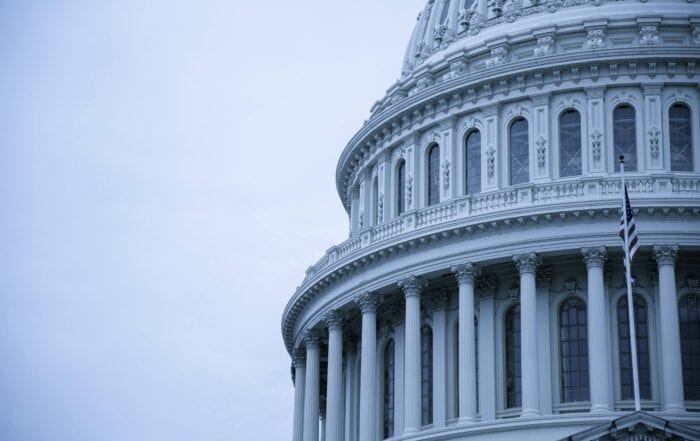BCB Group - Cryptocurrency - weekly roundup – Bank of England | World Bank | CBDC | Record Inflow
weekly roundup – Bank of England | World Bank | CBDC | Record Inflow
Last week we saw significant developments in global stablecoins, with the Facebook-backed Libra project announcing on Thursday that it has pivoted from a multi-currency-backed global token to a wallet and blockchain for single currency stablecoins as well as a multi-currency stablecoin-backed stablecoin.
And the idea of a “digital dollar” to facilitate stimulus payments has been reintroduced by US lawmakers in the latest stimulus bill.
Here are some of the big reads from the week, which the team here at BCB has come across.
BCB Appoints Hugh Kingdon as Advisor
We’re thrilled to announce the appointment of Hugh Kingdon to the BCB team as advisor. The appointment adds further depth to the growing team, with Kingdon bringing over two decades of experience built across the global payments and fintech industry, spanning senior leadership roles at Visa, MasterCard and Barclaycard. As Head of Fintech at Visa, for which he was named joint winner of the Visa CEO award, Kingdon led the team responsible both for winning multi-billion dollar deals, and for driving the critical transformation required to reposition the firm as fintech-friendly. As a trusted independent advisor and innovator, most recently he has consulted across various app development projects and is currently an advisor at Revolut.
Hugh comments, “It is rare to find an early stage Fintech with a clear business model and strong volumes; this is usually found in later stage ventures. BCB Group has transacted over $1bn since their launch less than a year ago, and their trading volumes continue to rise in the current crisis. It was therefore an easy decision to join them as an Advisor and my focus will be on helping BCB accelerate their growth.“
Grayscale’s Q1 Report Highlights a Record $500 million Inflow to Crypto Investment Products
In their Q1 2020 report, Grayscale, one of the largest crypto asset managers, raised over $500 million nearly doubling their previous quarterly high. Around one-third of that was from new investors who decided to enter the market amidst the heightened volatility this quarter. The vast majority was also from institutional investors who comprised 88% of inflows. Investors also are diversifying their holdings more with 38% of them allocating to multiple Grayscale products compared to 29% in Q1 2019.
The World Bank Highlights the Potential of Blockchain for Financial Inclusion
The World Bank has highlighted blockchain’s potential for financial inclusion in a new 70 page report on “Payment aspects of financial inclusion in the fintech era”. The report outlines several crypto and blockchain concepts including stablecoins and central bank digital currencies, describing their applications and potential risks.
Can Central Banks Kill Crypto and Central Bank Digital Currencies in the Age of Coronavirus
We always enjoy the Blockchain Insider podcast and the last two episodes have focused on something that we’re always keen to hear opinions about – CBDC.
As France experiments with a digital Euro, last week’s episode gets into a discussion about how CBDCs might be moving us further away from the goals of cryptocurrencies.
The previous week, the panel discussed how, as coronavirus continues to spread across the globe, we’re beginning to see shifts in attitudes towards CBDCs; meanwhile, in China, efforts to create a national digital currency have just gone up a notch as they complete development of the basic functions of a CBDC.
Bank of England Webinar on Central Bank Digital Currencies
Last week’s BOE presentation generated much buzz. At the outset, fintech director Tom Mutton provided the caveat that the 326-year-old bank has no commitment to launch a CBDC. Still, with COVID-19 effects expected to accelerate CBDC adoption, it was nonetheless worthwhile to garner ideas from an institution that, in 2015, was one of the first to explore the technology.
As you can see from the YouTube rerun, it was also peppered with insights from viewers via a series of flash surveys. This one stood out: If CBDCs were to employ distributed ledger technology the power of “programmability” topped the poll as its biggest benefit. “Programmable money” is entering the lexicon.
Bitcoin’s Correlation with Bonds and Equities
Researchers at the Kansas City Federal Reserve published a paper about bitcoin’s correlation with bonds and equities, with some unexpected results. This study is particularly interesting in that it differs from studies that look at overall correlations over time. This one isolates times of financial stress, when you arguably most need a safe haven, and it finds that, during these times, bitcoin acts more like a risk asset and has positive correlations with the S&P 500.
Renaissance Technologies’ flagship Hedge Fund Medallion Eyes Bitcoin Futures for Flagship Fund
Renaissance Technologies’ flagship Medallion fund is considering adding cash-settled bitcoin futures to its holdings, according to a recent filing. One of the world’s largest and best-known hedge funds (the Medallion fund has nearly $10 billion AUM and is up 24 percent so far this year) believes bitcoin is worthy of investment.
As per the regulatory filing, the hedge fund group disclosed that Medallion — a highly successful fund only open to Renaissance’s own employees — was dabbling in bitcoin, with the trading limited to cash-settled bitcoin futures traded on the CME. The firm also noted that “the underlying commodity for these futures transactions, bitcoin, is a relatively new and highly speculative asset…extremely volatile, and investment results may vary substantially over time.”
AMLD5 & FATF: A New Regulatory Era – Panel Discussion Webinar
Lawrence Wintermeyer, Board Member & Exec. Co-chair at GDF will be talking to Veronica McGregor Chief Legal Officer at Shapeshift; Elsa Madrolle General Manager International at CoolBitX; Diego Ballon Ossio, Senior Associate at Clifford Chance and our own co-founder Oliver Tonkin on the effect AMLD5 has had since it came into force earlier this year, and what we should anticipate as FATF guidance comes into enforcement later in 2020. Questions from the audience will be welcome – register here.








